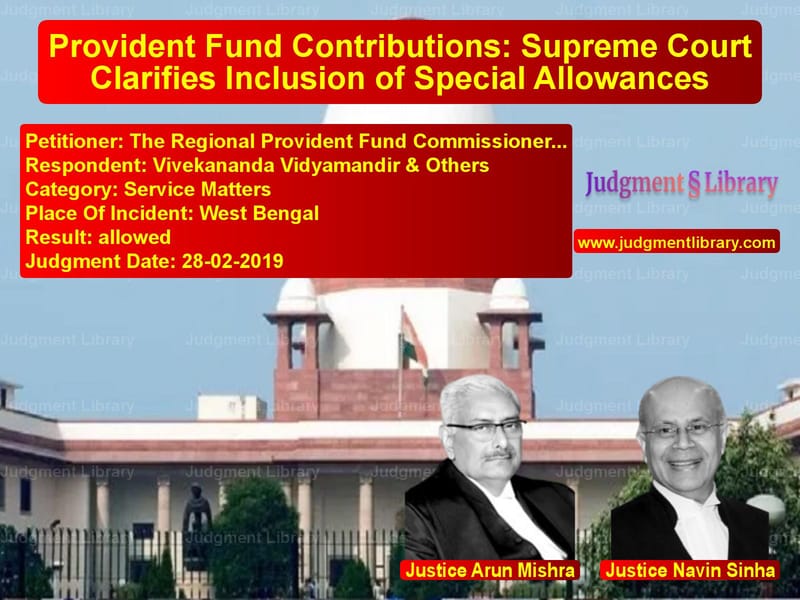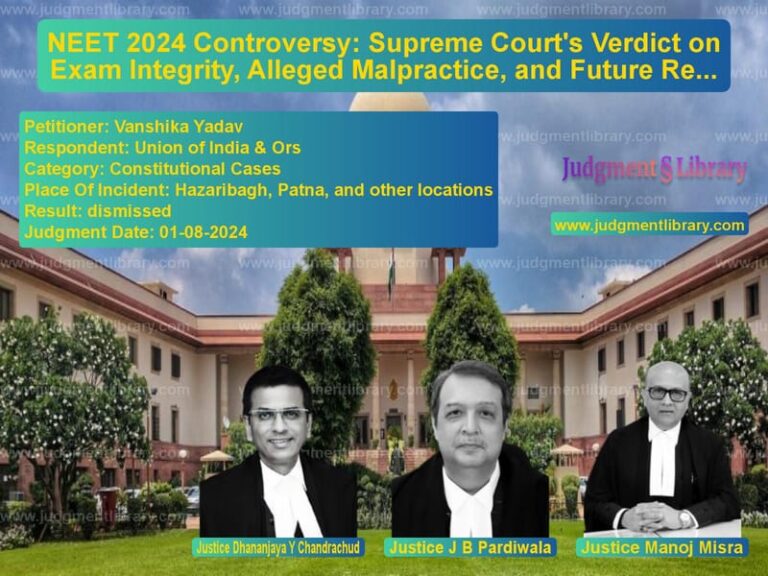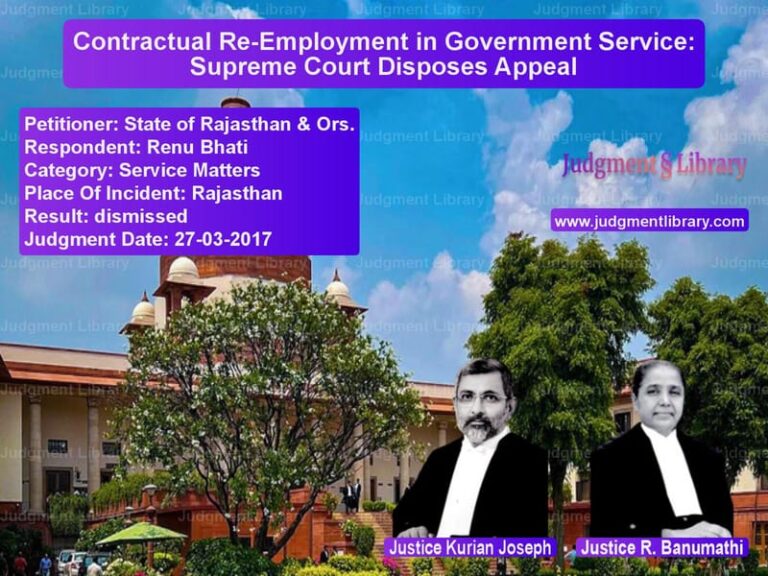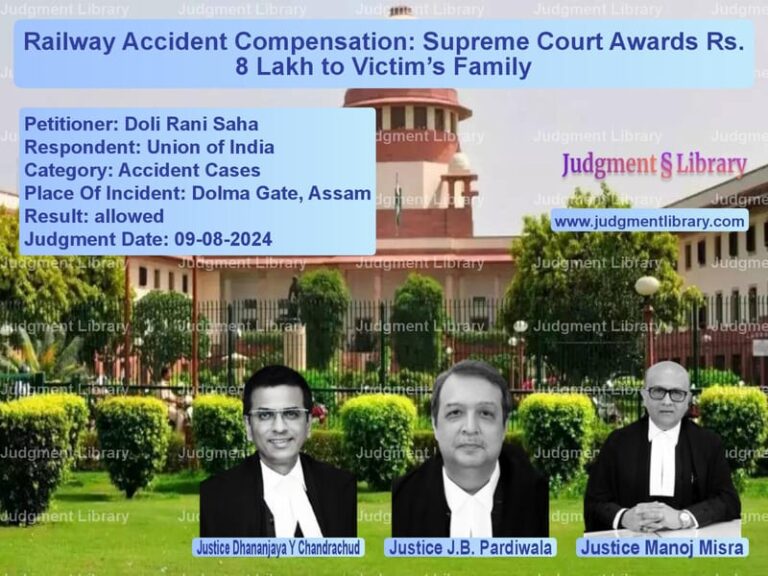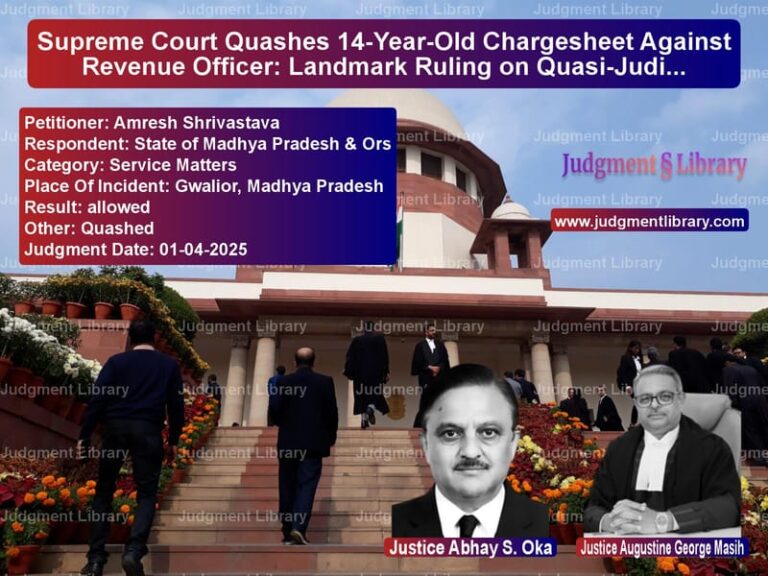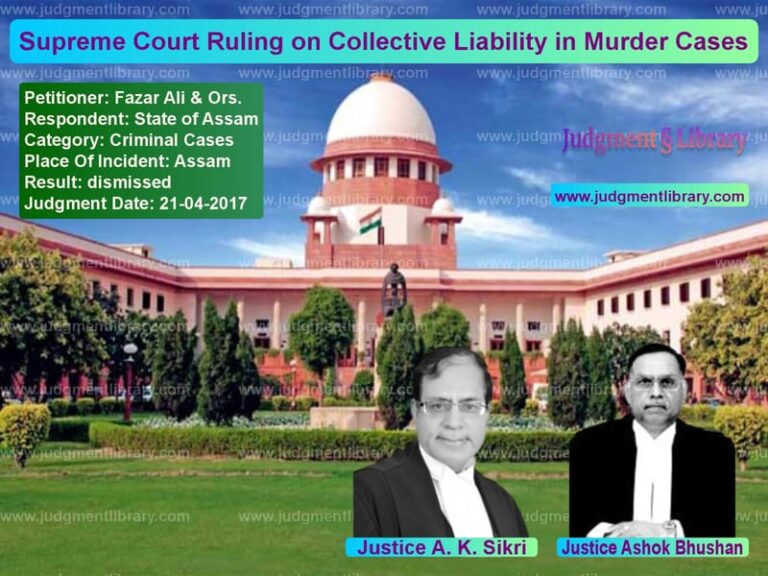Provident Fund Contributions: Supreme Court Clarifies Inclusion of Special Allowances
The Supreme Court of India recently delivered a landmark judgment in The Regional Provident Fund Commissioner (II), West Bengal vs. Vivekananda Vidyamandir & Others, addressing whether special allowances paid by establishments should be included in “basic wages” for provident fund (PF) contributions. This ruling has far-reaching implications for employers and employees regarding salary structure and PF deductions.
Background of the Case
The case involved multiple appellants, including educational institutions and private companies, challenging the applicability of PF contributions on special allowances paid to employees. The Employees’ Provident Fund and Miscellaneous Provisions Act, 1952 (hereafter referred to as the “Act”) mandates that employers contribute a percentage of employees’ basic wages, dearness allowance, and retaining allowance to the provident fund.
The dispute arose over whether various allowances, such as special incentives, house rent allowances, canteen allowances, and travel allowances, should be considered part of “basic wages” under Section 2(b)(ii) read with Section 6 of the Act. The establishments argued that these allowances were variable and not universally applicable, and hence, should be excluded from PF contributions.
Key Issues Before the Supreme Court
- Whether special allowances paid to employees fall within the definition of “basic wages” for the purpose of PF deductions.
- Whether employers can exclude special allowances from PF contributions by restructuring salary components.
- Whether the exclusion of certain allowances under Section 2(b) of the Act applies to the disputed special allowances.
- Whether the High Courts erred in their interpretation of the Act regarding PF contributions.
Petitioner’s (Regional Provident Fund Commissioner) Arguments
- The Commissioner contended that the special allowances paid by establishments were camouflaged as dearness allowances and should be included in “basic wages.”
- Under Section 2(b) of the Act, dearness allowance covers all cash payments made to employees due to increased cost of living. Therefore, these allowances fall within its scope.
- The allowance was payable to all employees across the board and was subject to periodic increments, making it indistinguishable from basic wages.
- Employers were attempting to evade statutory contributions by labeling a part of basic salary as “special allowances.”
Respondent’s (Employers) Arguments
- The employers argued that the allowances in question were distinct from “basic wages” and were meant to incentivize employees for specific work.
- Under Section 2(b) of the Act, specific exclusions exist, such as bonuses, commissions, overtime allowances, and similar payments, which should apply to special allowances.
- Some allowances were linked to performance, making them ineligible for PF contributions.
- They contended that house rent allowances, canteen incentives, and travel reimbursements were not universally applicable, making them exempt under the Act.
Supreme Court’s Observations
The Supreme Court, after analyzing the provisions of the Act and previous rulings, made key observations:
“The test to determine whether a payment falls within basic wages is its universality. If an allowance is paid to all employees without distinction, it forms part of basic wages.”
“The Act is a welfare legislation and must be interpreted in a manner that benefits employees. Allowing employers to manipulate salary components to avoid PF contributions defeats the purpose of social security.”
“The salary structure and breakup of pay must be examined to ascertain whether the allowances in question are genuinely distinct from basic wages or are merely an artificial segmentation to bypass PF contributions.”
Key Findings of the Supreme Court
- The Court ruled that special allowances forming part of an employee’s total emoluments and payable universally must be included in “basic wages.”
- Performance-linked incentives and bonuses tied to extra output beyond regular work are excluded from “basic wages.”
- The High Courts had erred in excluding special allowances from PF contributions without assessing whether they were uniformly paid.
- The Court directed establishments to ensure compliance with PF deductions in light of this ruling.
Impact of the Judgment
The ruling has significant consequences for employers and employees:
- Employers can no longer exclude special allowances from PF contributions by restructuring salary components.
- Employees stand to benefit from increased PF savings due to higher employer contributions.
- The judgment strengthens the legal framework to prevent misuse of salary structures to bypass labor laws.
- Companies must review salary structures to ensure compliance with PF regulations to avoid penalties.
Conclusion
The Supreme Court’s decision in The Regional Provident Fund Commissioner (II), West Bengal vs. Vivekananda Vidyamandir & Others clarifies the scope of “basic wages” under the Employees’ Provident Fund Act. By ruling that universally paid special allowances must be included in PF contributions, the Court upholds the spirit of social security and prevents wage restructuring strategies aimed at evading compliance. This landmark ruling ensures that employees receive the benefits they are entitled to under the PF scheme.
Petitioner Name: The Regional Provident Fund Commissioner (II), West Bengal.Respondent Name: Vivekananda Vidyamandir & Others.Judgment By: Justice Arun Mishra, Justice Navin Sinha.Place Of Incident: West Bengal.Judgment Date: 28-02-2019.
Don’t miss out on the full details! Download the complete judgment in PDF format below and gain valuable insights instantly!
Download Judgment: The Regional Provide vs Vivekananda Vidyaman Supreme Court of India Judgment Dated 28-02-2019.pdf
Direct Downlaod Judgment: Direct downlaod this Judgment
See all petitions in Pension and Gratuity
See all petitions in Employment Disputes
See all petitions in Public Sector Employees
See all petitions in Judgment by Arun Mishra
See all petitions in Judgment by Navin Sinha
See all petitions in allowed
See all petitions in supreme court of India judgments February 2019
See all petitions in 2019 judgments
See all posts in Service Matters Category
See all allowed petitions in Service Matters Category
See all Dismissed petitions in Service Matters Category
See all partially allowed petitions in Service Matters Category

